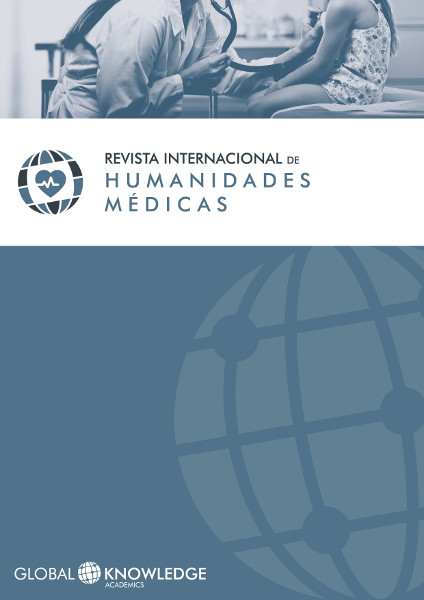Coping with Chronic Conditions from the Perspective of Stoicism: Lessons from Seneca and Epictetus
DOI:
https://doi.org/10.37467/gka-revmedica.v3.1173Keywords:
Chronic Conditions, Human Sciences, Philosophy, Self-Care, DisciplineAbstract
This research has a theoretical approach based on the stoic principle that happiness and self-fulfillment are natural consequences of right attitudes. It is possible to change the will to suit the world and live sick and happy, stating an individual desire autonomous and deterministic. This presupposes not an apathetic fatalism, but a moral resistance to better face the hardships of life. These are congruent principles to health care models for strengthening and supporting people in chronic conditions. A literature review of three works of the Stoic School (Encheiridion and The Discourses, by Epictetus, and Moral Letters to Lucilius, by Seneca) was performed. As results some principles are presented converging to notions of selfcare and shared care for chronic conditions, primarily focused on the autonomy and discipline of users to manage their health.
Global Statistics ℹ️
|
107
Views
|
93
Downloads
|
|
200
Total
|
|
References
Alvarenga, AT de, Vasconcellos MdaP., Adorno RdeCF. (2011). A Contribuição das Ciências Sociais e Humanas na Pesquisa, no Ensino e na Formação em Saúde. Saúde Soc., 20 (1), 9-15.
Bloom D.E., Cafiero E.T., Jané-Llopis E., Abrahams-Gessel S., Bloom, L.R., Fathima S., Feigl A.B., Gaziano T., Mowafi M., Pandya A., Prettner K., Rosenberg L., Seligman B., Stein A., Weinstein C. (2011). The Global Economic Burden of Non-communicable Diseases. Geneva: World Economic Forum. Available at www.weforum.org/EconomicsOfNCD access on 12-15-2012.
De Salazar, L. (2011). ¿Funcionan y son efectivas las intervenciones para prevenir y controlar las enfermedades crónicas? ¿Qué dice la evaluación? Cali, Colombia: Programa Editorial, Universidad del Valle.
Dinucci A, Julien A. (2012). O Encheiridion de Epicteto. Aracaju: Viva Vox.
Epictetus. (2012). O Encheiridion. Available at http://ia601204.us.archive.org/24/items/OEcheiridionDeEpictetoEdicaoBilingue/enchbifinal26.04.12.pdf access on 07-01-2013.
Epictetus. (2013). The discourses . Available at http://pensamentosnomadas.files.wordpress.com/2012/08/the-discourses.pdf access on 07-01-2013.
Gorovitz, S., MacIntyre, A. (1976). Toward a theory of medical fallibility. J Med Philos, 1 (1), 51-71. doi: 10.1093/jmp/1.1.51.
Leopardi, M.T. (2013). A filosofia no ensino como alicerce das ações dos profissionais da saúde. Disponível em http://leopardi.pro.br/news.htm access on 07-02-2013.
Marsiglia, R.M.G., Spinelli, S.P., Lopes, M.F., Silva, T.C.P. (2003). Das ciências sociais para as ciências sociais em saúde: a produção científica de pós-graduação em ciências sociais. Ciênc. Saúde coletiva , 8 (1), 275-285.
Mendes, E.V. (2011). As redes de atenção à saúde . Brasília: Organização Pan-Americana de Saúde (OPAS), Conselho Nacional de Secretários de Saúde (CONASS).
Minayo, M.C. de S. (1992). O desafio do conhecimento. Pesquisa qualitativa em saúde. São Paulo/Rio de Janeiro: HUCITEC/ABRASCO.
Nunes, E.D. (2003). Ciências sociais em saúde: um panorama geral. Em Goldenberg, P., Marsiglia, R.M.G. e Gomes, M. H. de A. (orgs), O Clássico e o Novo: tendências, objetos e abordagens em ciências sociais e saúde . Rio de Janeiro: FIOCRUZ.
PAHO - Pan American Health Organization. (2011). Non-communicable diseases in the Americas: building a healthier future. Washington, D. C.: PAHO. Disponível em http://new.paho.org/hq/index.php?option=com_docman&task=doc_view&gid=14832&Itemid= access on 02-15-2012.
Pellegrino, E.D. (1976). Philosophy of medicine: problematic and potential. J Med Philos, 1 (1), 5-31.
Sêneca. (2013). Moral letters to Lucilius (Epistulae morales ad Lucilium). Disponível em http://en.wikisource.org/wiki/Moral_letters_to_Lucilius access on 07-01-2013.
WHO – World Health Organisation. (2011). Global status report on non-communicable diseases 2010 . Italy: WHO Library. Disponível em http://www.who.int/nmh/publications/ncd_report2010/en/ access on 06-21-2011.
WHO – World Health Organisation. (2012). Governance for health in the 21st century . Paris. Disponível em http://www.euro.who.int/en/what-we-publish/abstracts/governance-for-health-in-the-21st-century access on 03-21-2012.
Downloads
Published
How to Cite
Issue
Section
License
Those authors who publish in this journal accept the following terms:
- Authors will keep the moral right of the work and they will transfer the commercial rights.
- After 1 year from publication, the work shall thereafter be open access online on our website, but will retain copyright.
- In the event that the authors wish to assign an Creative Commons (CC) license, they may request it by writing to administracion@edulab.es









